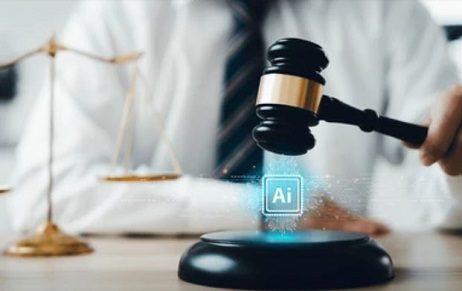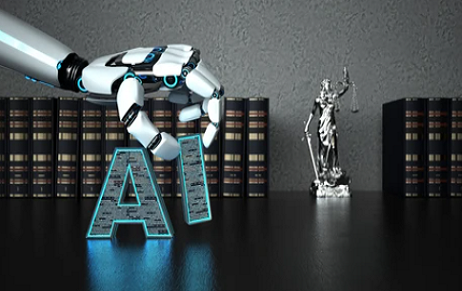Literature Review: David Henkin[1] In this article, the author has talked about how AI is…
Licensing the Vibes: What Every Store & Café Should Know About Music Rights
Any successful café, restaurant, or retail establishment’s environment is greatly influenced by its music. It creates a calm, relaxed atmosphere at a café or salon or energizes visitors while they explore in a store, setting the tone from the moment they come in. The ambiance of any successful café, restaurant, or retail outlet is determined by the music it plays. While a café or salon may have a calm, relaxed atmosphere diffused by music, store shoppers can be energized by tunes with an exuberant tempo, thereby setting the tone the minute they walk in. A unique soundtrack can improve the satisfaction of customers, influence purchasing patterns, and create a lasting impression. Even while a well-chosen playlist might improve the image of one’s business, many owners are unaware of the legal obligations associated with playing music in public areas. From background music to live performances, every type of music played in a commercial space has its own set of rules.
Every piece of music is protected by intellectual property laws, which means the shop owner is required to secure the appropriate licenses before they can broadcast it in a public space like a café, restaurant, or retail shop. This is because music creators—whether they are composers, songwriters, or performers—have rights over how their work is used. These rights must be respected, even in a commercial setting, as the owner is making money out of it.
Like films, books, or art, music is protected by copyright, and using it in your café or shop means you are playing someone else’s creative work. If the proprietor does not have the necessary permits, the company may be subject to hefty fines and penalties or may be subject to legal proceedings. Many company owners believe that they can play music in their establishments without restriction if they purchase CDs or subscribe to music streaming services. However, this is a common misunderstanding. Personal use licenses from these services do not cover public performances, so one cannot simply hit play and expect everything to be fine. Without the proper business licenses, even having music playing softly in the background can put one in a tricky legal situation. Additionally, performing a song without the required authorization (which means obtaining licenses) can have serious repercussions.
The author dives into the nitty gritty of licensing music for various business models in this article. This article shall cover the necessity of licenses and different licenses that suit one’s model
PROVISIONS FROM THE INDIAN COPYRIGHT REGIME
The purpose of copyright societies is to encourage copyright owners to join and be a part of the national society. These societies are structured to provide licenses to users and effectively monitor how the works of owners are utilized. Both copyright owners and consumers profit from these copyright societies in the following ways:
- Customers can save a great deal of time and effort by easily obtaining licenses for several fields in one place.
2. By providing improved monitoring, copyright societies help ensure that the content of creative works is safeguarded.
A copyright society must register to operate under Section 33(3) of the Copyright Act. This registration is valid for ten years and can be renewed after that. Once registered under the Copyright Act, a copyright society has the authority to issue licenses to users for the recordings of its members. Additionally, these societies can charge and collect fees from users who utilize sound recordings. They also have the authority to take action against infringing their members’ copyrights.
For establishments such as restaurants or hotels that play music through sound systems, televisions, and radios or host live performances or D.J. events, public performance licenses must be obtained from the Indian Performing Rights Society (I.P.R.S.). The Copyright Act of 1957 mandates the existence of the I.P.R.S. under Section 33(3), safeguarding the rights of composers, songwriters, and publishers[i].
LICENSE AND SOCIETIES
Broadly, there are three societies in India that govern the distribution of music and are actively involved in grating licenses to the users for commercial use at their business setups, which may include restaurants, pubs, discos, bars, salons, retail shops, and the like. To begin with,
The first performance rights organization that gives public performance licenses is Phonographic Performance Limited (PPL). This organization was founded in the year 1941. Though registered prior to the 2012 amendment, its application for re-registration is still pending. It aims at licensing the sound recordings of its members for the purpose of broadcasting and public performance. Currently, PPL India is engaged in managing the PPR of about 400 music labels, which encompasses “more than 7.9 million domestic and international sound recordings”. Being the largest and most respected PPR organization in India, it represents various renowned record labels, both national and international, including “Lahari Music, Sony Music Entertainment, Speed Records, T-Series, Universal Music, and Warner Music.” PPL issues licenses to users (individual or business entity) under Section 30 of the Copyright Act, backed by Assignment Deeds (section 18 Copyright Act, 1957) and exclusive licenses (section 30 of the copyright Act, 1957) from its member labels, and such agreements are deemed to be valid by virtue of the act. Users are expected to pay for the music they use to the copyright holders. It is a no profit-loss organization and, therefore, directly transfers all the royalties it receives to the rightful holders of the composition. They issue licenses to “commercial establishments/premises/venues like hotels, discotheques, clubs, lounges, bars, pubs, shops, stores, malls, salons, hospitals, offices, amusement parks, buses, taxis, aircraft, events, show,” etc. for “on-ground public performance, i.e., communication of sound recordings/music of our members to the public” and collect royalties. PPL also provides radio broadcast licenses for terrestrial, community, and national public radio stations. Background performance licenses are typically valid for one, two, or three years, while event licenses are limited to the duration specified for each event or show, for instance, live performances[ii].
In our daily lives, we come across salons in our locality that play music without obtaining a license[iii] using televisions or connect their speakers to YouTube, which goes against the provisions of the Copyright Act and is a straight violation of section 51 of the act and attracts fine extending to 2 Lakh Rupees/ three years of imprisonment or both. In a recent dispute of Phonographic Performance Limited vs Geetanjali Salon Private Limited & Ors[iv], the Delhi High Court was kind enough to grant an ex-parte injunction to the plaintiff against using sound recordings that formed “part of the repertoire of copyrighted songs” of the plaintiff. Geetanjali Salon, along with its various units at different places, were injuncted. From a pool of all the outlets, only one outlet had the license. Using PPL’s music without a license was an outright infringement of PPL’s copyright.

Moving on to the second organization, The Indian Performing Right Society, which authorizes the use of copyrighted music by issuing licenses to music users and collecting royalties on behalf of its members, including composers, authors, and music publishers. After deducting administrative costs, the royalties collected are distributed to these members. In this context, “composers are commonly known as music directors, authors as lyricists, and publishers are usually the music companies or those who hold the publishing rights to musical and literary works.” The term “writers” may refer to either composers, authors, or both. The website of this organization provides licenses for a variety of uses, which include Public Performance, Television/Radio, O.T.T./ Streaming/Physical Medium, Ringtone/C.R.B.T., Music in commercials, and licensing forms. These categories include within themselves a vast range of activities.
The court in I.P.R.S. Ltd. vs. Rajasthan Patrika Pvt. Ltd[v]. ruled that I.P.R.S. has the right to collect royalties for using literary and musical works featured in sound recordings or films. The court clearly stated that whenever a sound recording is broadcast to the public via radio stations, it involves the use of the underlying “literary and musical works,” entitling the authors to royalties. Consequently, the creators of these “literary and musical works” are entitled to claim royalties each time the sound recordings are broadcast publicly via radio stations[vi].
Various renowned singers like M/s. Lata Mangeshkar, Usha Mangeshkar, Pankaj Udhas, Kumar Sanu, and Sonu Nigam, with the help of singers like Shaan, Kunal Ganjawala, Asha Bhosle, and many others, came together to form the Indian Singers Right Association, which is now known as Indian Singers’ and Musicians’ Rights Association in the year 2013. This organization was the first copyright society which was registered by the Central government post the amendments of 2012 pertaining to singers. Any user who plays, exploits, or uses songs performed by I.S.A.M.R.A. members and its affiliated societies is now legally required to obtain permission from I.S.A.M.R.A. by paying the necessary royalty as per the set tariffs. This applies regardless of whether the songs are Indian or international, as long as I.S.A.M.R.A.’s singer members perform them, and the user must pay the corresponding royalties[vii].
Back in 2016, The court examined the definition of “performance” under the Copyright Rules in the case of I.S.R.A. vs. Chapter 25 Bar and Restaurant[viii]. It also reviewed the exclusive rights granted to performers under the Act, such as the “right to make sound or visual recordings of their performances” and to “communicate them to the public.” Notably, the court highlighted that even if a film producer enjoys certain rights over a performer’s work, the performer is still entitled to royalties for the commercial use of their performance as per Section 38A(2). The singers have an inalienable “right to receive royalty” where the work is commercially exploited
The court further discussed the role of copyright societies in collecting and distributing royalties on behalf of performers under Section 39A(1) and acknowledged the Deeds of Exclusive Authorisation (D.E.A.) provided by I.S.R.A., in which its members authorized I.S.R.A. to collect royalties for them by virtue of 38A of the act.
Ergo, the court ruled in I.S.R.A.’s favor, granting a permanent injunction and ordering the defendant to account for all earnings made from the performances of I.S.R.A.’s members. Additionally, the court ordered the defendant to pay I.S.R.A. Rs. 20,000 in costs.
Just two months after the above case, in I.S.R.A. vs. Night Fever Club and Lounge[ix], The defendant, without obtaining a “Performers Rights Clearance Certificate,” used songs of I.S.R.A. members, violating plaintiff members’ rights. The defendants were permanently injuncted from playing/using those songs and were directed to pay royalties. The 4th proviso of section 18 clearly states that the performer cannot give their right to receive royalties except to their legal heirs or copyright society herein I.S.R.A. Plaintiffs were authorized to receive such royalties by way of executed deeds where performers’ exclusive rights were used or exploited. Here, the club was doing so in violation of 38A as the use was commercial and without the owner’s authority.
S.P.I. Music Private Limited, a leading Indian music company, owns the Think Music label, which was established in 2007 and based in Chennai. They are engaged in providing music distribution and production services across India. Think Music is known for its focus on South Indian film soundtracks. It boasts a catalog that includes some of Tamil cinema’s most iconic albums, such as Enthiran, Kabali, Theri, 96, and many others[x].
In the case of S.P.I. Music Private Limited vs. Kanchepuram S.M. Silks[xi], heard by the Madras High Court on 24 January 2024, the court addressed the unauthorized use of two tracks, “Global Gear” and “On Cloud Nine,” from the album Veena in Vienna created by plaintiff 2 in television commercials. Plaintiff 1 had been granted an exclusive license by Plaintiff 1 to exploit the work commercially. The defendant used the work in their commercials without consent, permission, or authority from the plaintiffs. The court granted an injunction prohibiting Kanchepuram S.M. Silks from further using the music in their ads. Additionally, the court awarded S.P.I. Music damages of Rs. 1 Lakh, compensatory costs of Rs. 4 Lakh, and ordered the defendant to hand over the profits earned from the infringing commercials and cover litigation expenses.
PATH AHEAD
As copyright societies like I.S.A.M.R.A., PPL, and I.P.R.S. continue to grow, and more artists assign their rights to these organizations, it’s becoming increasingly important to find a balance between protecting the rights of creators and supporting businesses that use their music.
Most businesses do not realize that public playing of music, be it in a café, restaurant, or retail shop, requires a license. Awareness of the law needs to be boosted so as to avoid unintended transgressions. These copyright organizations can help by simplifying the licensing process and making it easier for small businesses to navigate. At the same time, government agencies need to step up enforcement of copyright laws, ensuring that everyone is playing by the same rules., including penalizing unauthorized use of music in public spaces. Unaware that they face harsh penalties, “Roadside Tapris” uses Bluetooth speakers to play music to draw clients. While no one is going to go and take legal action against all of these shops, it is illegal in the first place as it is being used for commercial purposes.
In order to ensure that authors receive the payment they are entitled to, copyright societies and legal authorities can collaborate to help settle disputes more quickly and effectively.
Last but not least, launching educational initiatives and improving the clarity and usability of the royalty payment procedure will help convince more organizations to embrace licensing, which will be advantageous to both artists and businesses. Everyone can prosper if a just and simple system is established.
Author: Anavi Jain, in case of any queries please contact/write back to us via email to chhavi@khuranaandkhurana.com or at IIPRD.
[i]https://enterslice.com/learning/how-to-take-music-license-for-playing-music-in-restaurant/#:~:text=Take%20Music%20License%20to%20Play%20Music&text=These%20restaurants%20or%20cafes%20have,composers%2C%20songwriters%2C%20and%20publishers.
[ii] https://www.pplindia.org/about.
[iii] https://www.scconline.com/blog/post/2024/02/22/delhi-high-court-grants-ex-parte-interim-injunction-against-geetanjali-salon-in-copyright-infringement-case/.
[iv] CS(COMM) 148/2024.
[v] IA No. 9452 of 2022.
[vi] Mathews V C, Muskan Sawhney, Authors’ Right to Receive Royalty for Underlying Works Recognised at Last, Fox and Mandal, 29 May 2023.
[vii] https://www.isamracopyright.com/about_us.
[viii] CS (OS) 2068/2015 & IA No. 14261/2015
[ix] CS (OS) 3958/2014 & I.A. No. 15/2016.
[x] https://thinkmusic.in/about-us/.
[xi] (C.S. No. 380 of 2017).



